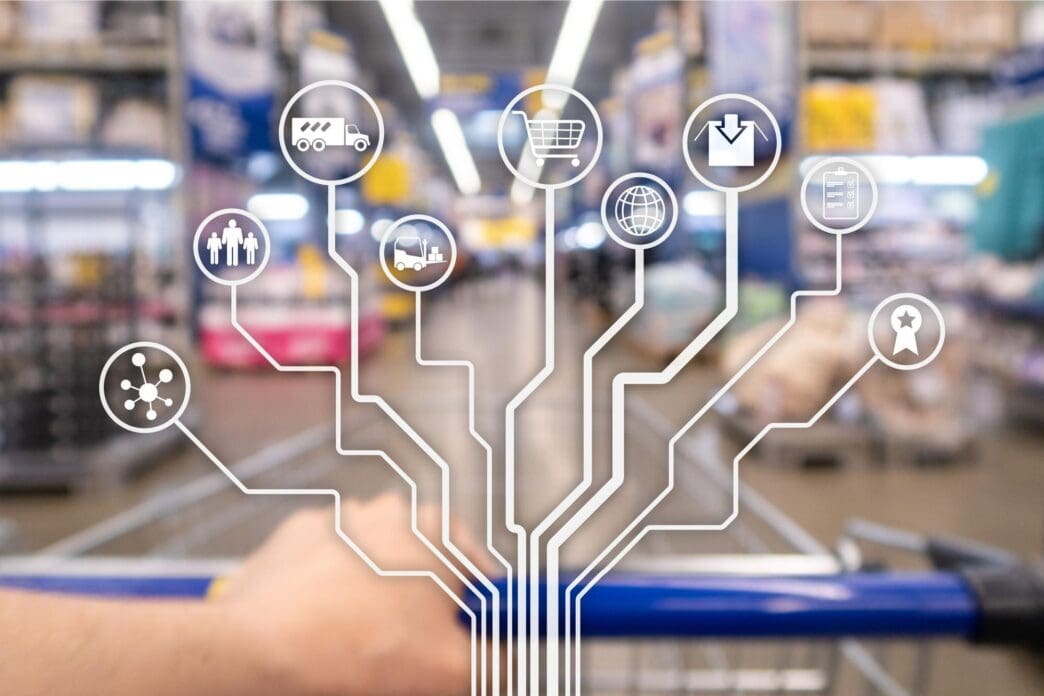Executive Summary
The Trajectory So Far
The Business Implication
Stakeholder Perspectives
Enterprise Resource Planning (ERP) systems are comprehensive software solutions designed to integrate and manage all core business processes, from finance and human resources to supply chain and customer relationship management. For organizations across manufacturing, retail, and service industries, adopting an ERP system is no longer a luxury but a strategic imperative to enhance operational efficiency, improve data visibility, and drive sustainable growth in today’s complex digital landscape. These systems centralize data, automate workflows, and provide a unified view of operations, enabling businesses to make informed decisions and respond rapidly to market changes.
Understanding Enterprise Resource Planning (ERP)
At its core, an ERP system acts as the central nervous system of a business, connecting disparate departments and functions into a single, integrated platform. It consolidates data from various operational areas, providing real-time insights that are crucial for strategic planning and day-to-day management. The primary goal of ERP is to streamline processes, eliminate data silos, and foster collaboration across the entire organization.
Modern ERP systems are typically modular, allowing businesses to select and implement specific functionalities based on their unique needs. Common modules include financial management, human capital management (HCM), supply chain management (SCM), customer relationship management (CRM), manufacturing, project management, and business intelligence (BI). This modularity ensures flexibility and scalability, enabling companies to expand their ERP capabilities as they grow.
Why ERP is Critical for Business Transformation
Implementing an ERP system can unlock significant benefits, fundamentally transforming how a business operates and competes. It leads to improved operational efficiency by automating manual tasks and standardizing processes, reducing the likelihood of errors and freeing up employees to focus on more strategic activities. Enhanced data visibility provides a single source of truth, empowering management with accurate, real-time information for better decision-making.
Furthermore, ERP contributes to cost reduction through optimized inventory levels, streamlined procurement, and better resource utilization. It also improves customer satisfaction by enabling faster order fulfillment, more accurate delivery times, and personalized service through integrated CRM functionalities. Ultimately, a well-implemented ERP system provides the foundational technology infrastructure necessary for scalability and agility in a rapidly evolving market.
ERP for Manufacturing
Manufacturing operations are inherently complex, involving intricate processes from raw material procurement to finished product delivery. ERP systems are vital in this sector for managing production planning, inventory, quality control, and supply chain logistics. They help manufacturers optimize production schedules, minimize waste, and ensure compliance with industry standards.
Key ERP modules for manufacturing include material requirements planning (MRP), shop floor control, product lifecycle management (PLM), and quality management. These modules enable precise forecasting, efficient resource allocation, and real-time tracking of production progress. By integrating these functions, manufacturers can reduce lead times, improve product quality, and enhance overall operational control.
Top ERP Systems in Manufacturing
Leading ERP solutions for manufacturing often offer robust capabilities tailored to industry-specific challenges. Systems like SAP S/4HANA, Oracle NetSuite, and Microsoft Dynamics 365 provide comprehensive suites that handle everything from discrete manufacturing to process manufacturing. Specialized solutions such as Infor CloudSuite Industrial (SyteLine) also cater specifically to complex manufacturing environments, offering deep functionality for areas like engineer-to-order and make-to-order production.
ERP for Retail
The retail industry, characterized by rapid inventory turnover, diverse sales channels, and evolving customer expectations, relies heavily on efficient data management. ERP systems help retailers manage inventory across multiple locations, streamline point-of-sale (POS) operations, integrate e-commerce platforms, and enhance customer relationship management. This integration provides a unified view of sales, inventory, and customer data.
Essential ERP functionalities for retail include merchandise management, supply chain optimization, multi-channel sales support, and robust analytics. These systems enable retailers to optimize stock levels, personalize marketing campaigns, and provide a seamless customer experience across online and physical stores. They are crucial for managing returns, promotions, and customer loyalty programs effectively.
Top ERP Systems in Retail
For retailers, ERP systems that excel in inventory management, POS integration, and e-commerce capabilities are paramount. Prominent solutions include Oracle NetSuite, which offers strong multi-channel retail capabilities, and Microsoft Dynamics 365, known for its flexibility and integration with other Microsoft products. SAP Business One is also a popular choice for small to mid-sized retailers due to its comprehensive features and scalability.
ERP for Services
Service-based businesses, ranging from consulting firms to marketing agencies and IT service providers, have unique operational needs centered around project management, resource utilization, and client billing. ERP systems tailored for services help manage projects, track time and expenses, optimize resource allocation, and ensure accurate invoicing. They are critical for maintaining project profitability and client satisfaction.
Key modules for service industries include professional services automation (PSA), project accounting, resource management, and client relationship management. These functionalities enable service firms to plan projects effectively, monitor progress in real-time, manage consultant utilization, and streamline billing cycles. The goal is to improve project delivery efficiency and enhance overall financial performance.
Top ERP Systems in Services
ERP solutions for service industries often emphasize project management and resource planning. Leading systems like Oracle NetSuite, SAP Business ByDesign, and Microsoft Dynamics 365 Project Operations provide robust PSA capabilities. Workday also offers strong human capital management and financial management features that are highly relevant for large service organizations, ensuring efficient workforce and financial oversight.
Key Considerations When Choosing an ERP System
Selecting the right ERP system is a critical strategic decision that requires careful evaluation. Businesses must consider factors such as their specific industry needs, the scalability of the system, and its ability to integrate with existing software. The total cost of ownership (TCO), including implementation, customization, training, and ongoing maintenance, should also be thoroughly assessed.
Furthermore, businesses need to decide between cloud-based (SaaS) and on-premise deployments, weighing the benefits of lower upfront costs and easier maintenance for cloud solutions against the greater control offered by on-premise systems. Vendor reputation, support services, and the availability of industry-specific functionalities are also crucial elements in the decision-making process.
Implementing an ERP System: Best Practices
Successful ERP implementation goes beyond merely installing software; it requires a strategic approach to change management and user adoption. A clear implementation roadmap, strong executive sponsorship, and dedicated project teams are essential. Thorough data migration and rigorous testing are also critical to ensure data integrity and system functionality before go-live.
Training end-users effectively and managing organizational change are paramount to maximizing the return on investment. Businesses should anticipate challenges such as resistance to new processes and data cleanup efforts, planning proactively to mitigate these issues. Continuous improvement and ongoing support are also vital for long-term success, ensuring the ERP system evolves with the business.
The Future of ERP
The ERP landscape is continuously evolving, driven by advancements in technology. The integration of artificial intelligence (AI) and machine learning (ML) is enhancing ERP capabilities, enabling predictive analytics, intelligent automation, and personalized user experiences. Internet of Things (IoT) integration is providing real-time data from connected devices, particularly beneficial for manufacturing and supply chain management.
Cloud-native ERP solutions continue to gain traction, offering greater flexibility, scalability, and accessibility. The focus is shifting towards more intelligent, adaptive, and composable ERP systems that can be easily configured and integrated with other best-of-breed applications. These advancements promise even greater efficiency and strategic value for businesses across all sectors.
Implementing an ERP system represents a significant investment and a transformative journey for any business. Whether in manufacturing, retail, or services, the right ERP solution can integrate disparate operations, provide unparalleled data visibility, and drive efficiency across the enterprise. By carefully assessing needs, selecting an appropriate system, and executing a thoughtful implementation, businesses can leverage ERP to achieve operational excellence, foster innovation, and secure a competitive advantage in an increasingly digital world.








